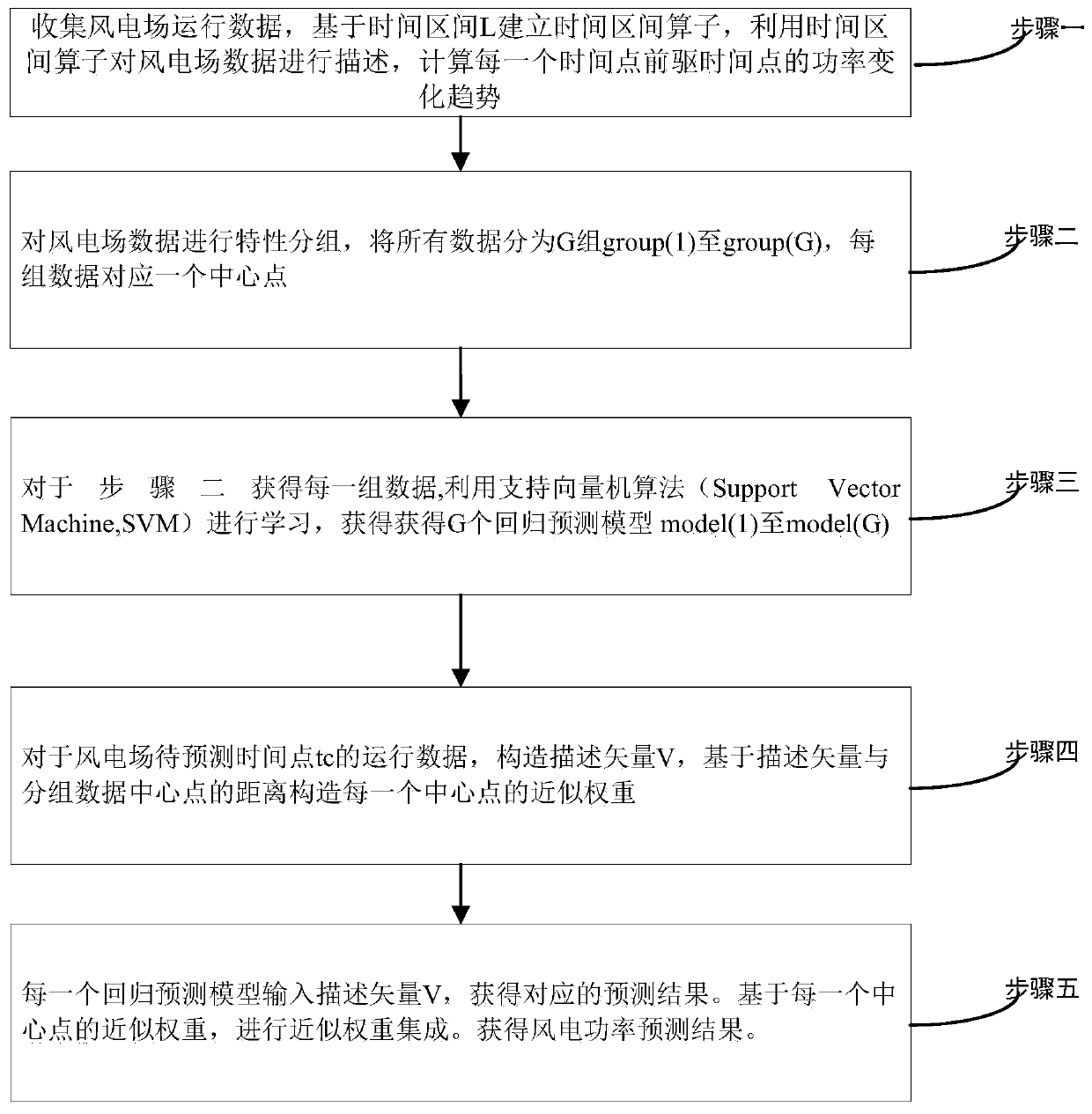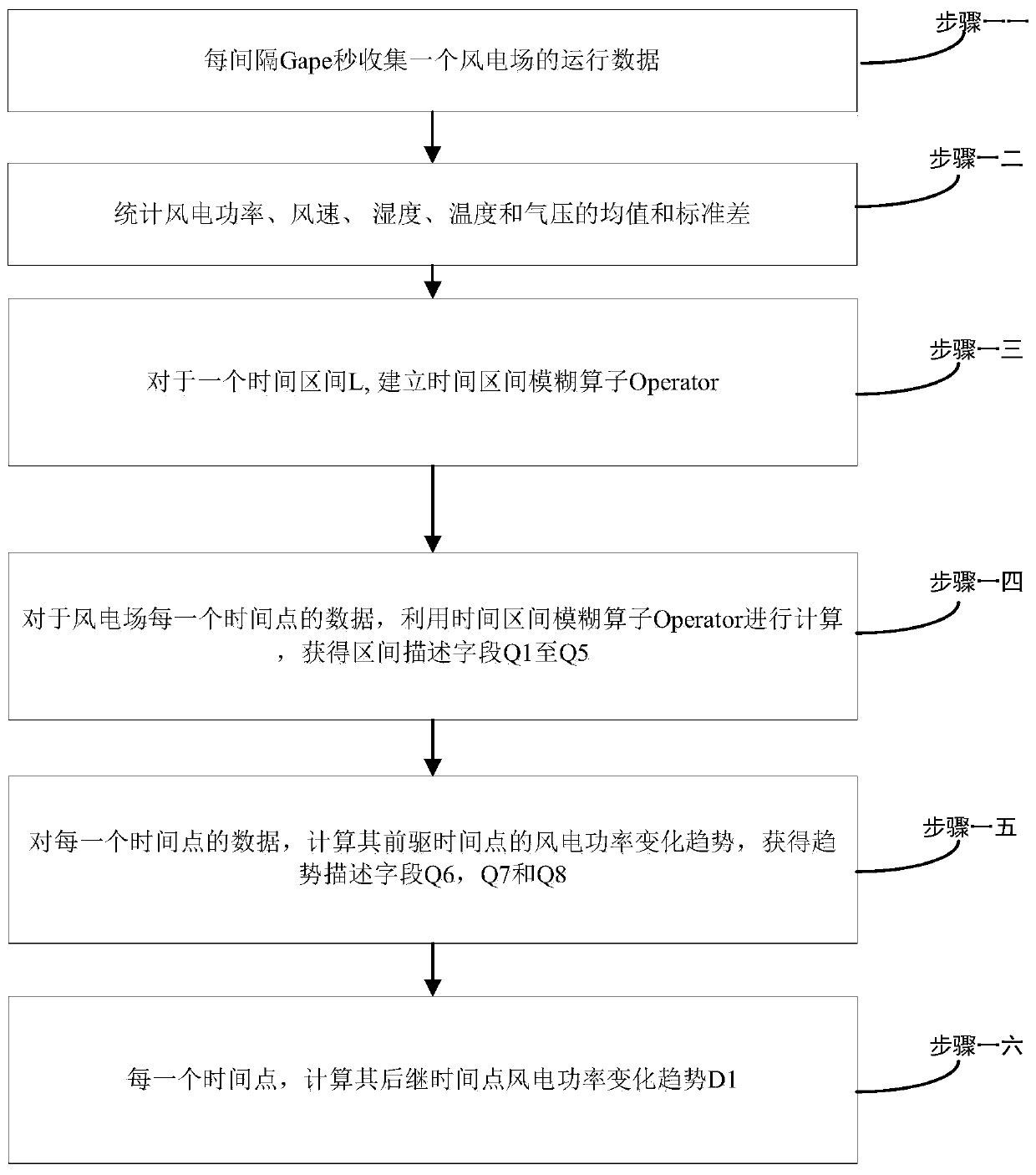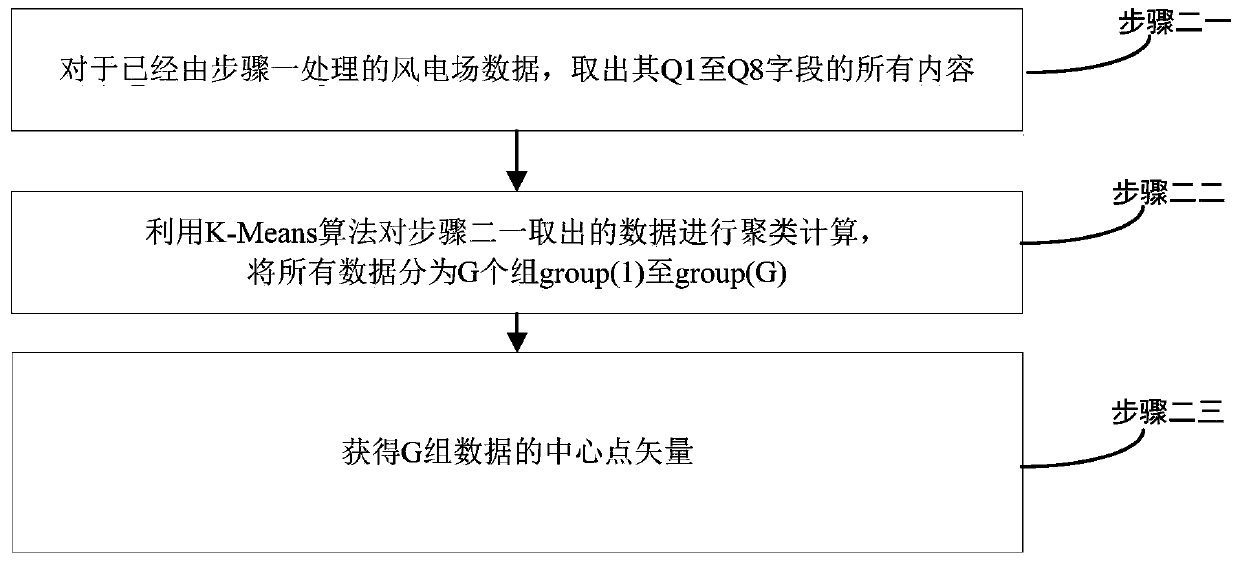A Wind Power Forecasting Method Based on Time Interval Fuzzy Operator and Approximate Weight Integration
A technology for wind power forecasting and time interval, applied in forecasting, computing, computer components, etc., can solve problems such as fluctuation and time delay of output power change, achieve accurate forecasting results, reduce capacity, and improve safety and stability. Effect
- Summary
- Abstract
- Description
- Claims
- Application Information
AI Technical Summary
Problems solved by technology
Method used
Image
Examples
specific Embodiment approach 1
[0023] Specific implementation mode one: as figure 1 As shown, a wind power prediction method based on the integration of time interval fuzzy operators and approximate weights includes the following steps:
[0024] Step 1: Collect the operating data of the wind farm, establish a time interval operator based on the time interval L, use the time interval operator to describe the wind farm data, and calculate the power change trend of the preceding time point at each time point and the subsequent time of time point t Point wind power change trend;
[0025] Step 2: Carry out characteristic grouping on wind farm data, divide all data into G groups, namely group(1) to group(G), each group of data corresponds to a central point;
[0026] Step 3: For each set of data obtained in Step 2, use the Support Vector Machine (SVM) algorithm to learn, and obtain G regression prediction models model(1) to model(G);
[0027] Step 4: Construct the description vector V for the operation data of ...
specific Embodiment approach 2
[0029] Specific implementation mode two: the difference between this implementation mode and specific implementation mode one is: if figure 2 As shown, the operation data of the wind farm is collected in the first step, a time interval operator is established based on the time interval L, and the time interval operator is used to describe the wind farm data, and the specific power change trend of the preceding time point at each time point is calculated. The process is:
[0030] Step 11: Collect the operating data of a wind farm every Gape second; the Gape corresponds to the number of seconds of the data collection interval, and the default value is 900 seconds; the operating data of the wind farm includes: wind power F1, wind speed F2, humidity F3, temperature F4, air pressure F5, wind direction F6;
[0031] Store the collected data into the database; each time point corresponds to a record in the database. For a time point t, the fields of each record include: ID(t) indica...
specific Embodiment approach 3
[0038] Specific embodiment three: the difference between this embodiment and specific embodiment one or two is that: for a time interval L in the step one or three, the specific process of setting up the time interval fuzzy operator Operator is:
[0039] The fuzzy membership degree of the time point k seconds away from the time point t is described as:
[0040]
[0041] The time zone fuzzy operator is as follows:
[0042]
[0043] Other steps and parameters are the same as those in Embodiment 1 or Embodiment 2.
PUM
 Login to View More
Login to View More Abstract
Description
Claims
Application Information
 Login to View More
Login to View More - R&D
- Intellectual Property
- Life Sciences
- Materials
- Tech Scout
- Unparalleled Data Quality
- Higher Quality Content
- 60% Fewer Hallucinations
Browse by: Latest US Patents, China's latest patents, Technical Efficacy Thesaurus, Application Domain, Technology Topic, Popular Technical Reports.
© 2025 PatSnap. All rights reserved.Legal|Privacy policy|Modern Slavery Act Transparency Statement|Sitemap|About US| Contact US: help@patsnap.com



